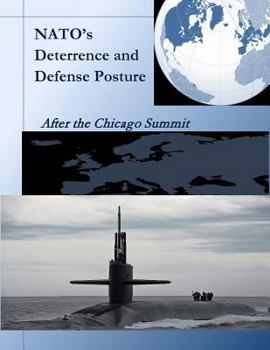NATO's Deterrence and Defense Posture: After the Chicago Summit
On 25-27 June 2012 the NATO Defense College, the NATO Nuclear PolicyDirectorate, and the U.S. Naval Postgraduate School Center on Contemporary Conflict convened a workshop at the NATO Defense College in Rome concerning the future of NATO's deterrence and defense posture in light of the decisions taken at the Alliance's summit meeting in Chicago in May 2012. Much of the discussion focused on the Deterrence and Defense Posture Review (DDPR) approved by the Allies at the Chicago Summit.Some workshop participants expressed reservations about a fundamental premise of the DDPR - that the Allies should define an "appropriate mix" of nuclear, conventional, and missile defense capabilities. Some participants argued that missile defense is burdened by questions about its effectiveness and cost, while "conventional deterrence" is threatened by cutbacks in defense spending in the current and potentially long-lasting financial crisis. In this situation, the Allies will be faced with the choice of continuing torely on nuclear deterrence or seeing deterrence undermined.Many workshop participants said that NATO's nuclear-sharing arrangementsremain important for deterrence and assurance within the Alliance. The life extension program for the B-61 gravity bomb and the modernization of dual-capable aircraft remain central issues for the future of NATO's nuclear deterrence posture.Several participants said that the DDPR's focus on nuclear, conventional, and missile defense capabilities was "too narrow" and that future assessments of the Alliance's capability requirements must take the cyber and space dimensions into account. Should the Alliance specify a threshold of damage that would provoke retaliation in these domains? Current U.S. policy has been not to specify "red lines" or possible retaliatory responses, in order to promote uncertainty in the assessments of adversary leaders.Participants agreed that strategic communication is essential for credibility and effective deterrence and crisis management, and some participants analyzed how messages may be misinterpreted by potential adversaries. Instead of identifying potential adversaries in publicly articulated threat assessments, the Alliance has opted to concentrate on "generic" scenarios and planning situations. The Allies have found this approach to be advantageous for Alliance unity and diplomacy, but some participants held that it may increase the risk of miscalculation.Several participants identified obstacles to negotiating limits on Russian nonstrategic nuclear forces - above all, Moscow's reliance on these weapons to support its security and foreign policy objectives. In view of NATO's previous unilateral reductions in non-strategic nuclear forces, participants expressed reservations about "lead by example" proposals for further unilateral reductions. The U.S. government has promised to make no further reductions in its nuclear weapons deployed in Europe without an Alliance consensus and Russian reciprocity. Participants noted the continuing tension between NATO's reliance on nuclear deterrence and its long-term commitment to nuclear disarmament.
Format:Paperback
Language:English
ISBN:1500228168
ISBN13:9781500228163
Release Date:June 2014
Publisher:Createspace Independent Publishing Platform
Length:38 Pages
Weight:0.25 lbs.
Dimensions:0.1" x 8.5" x 11.0"
Customer Reviews
0 rating





